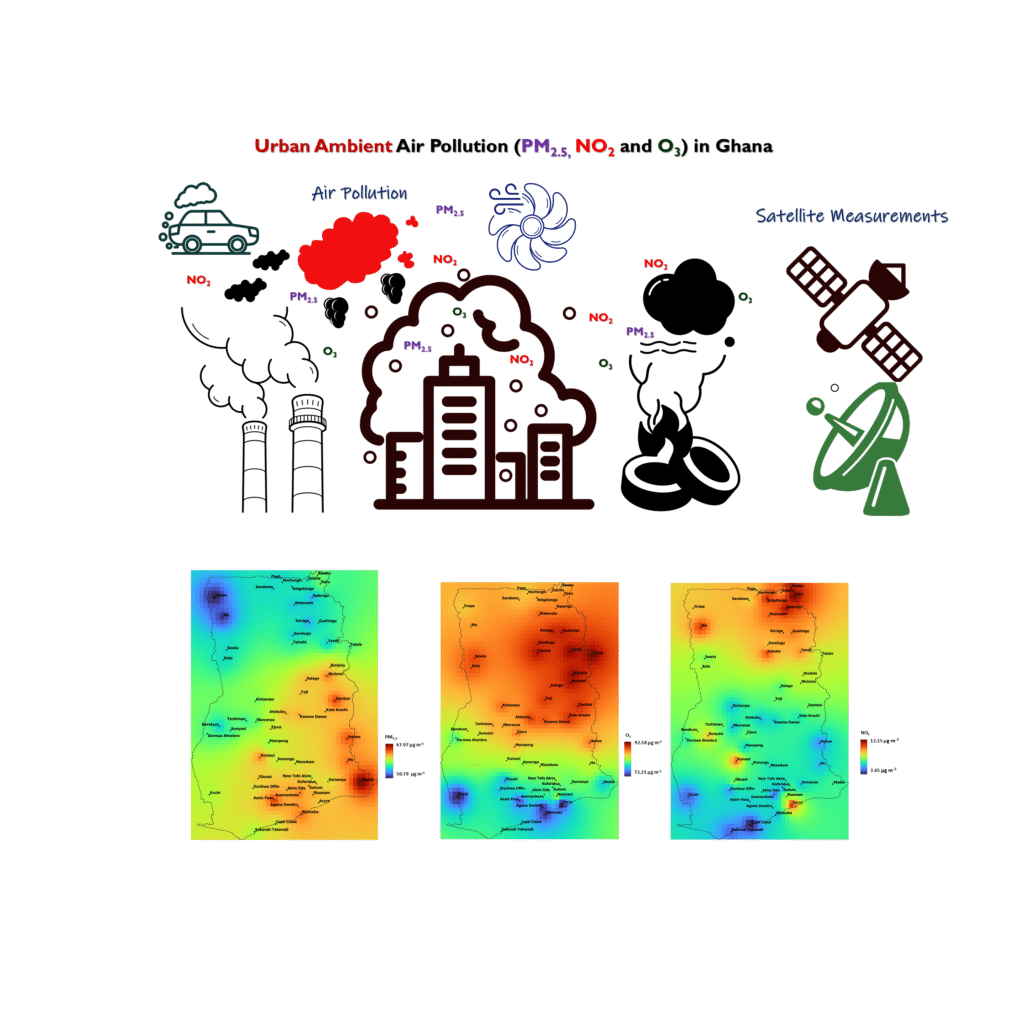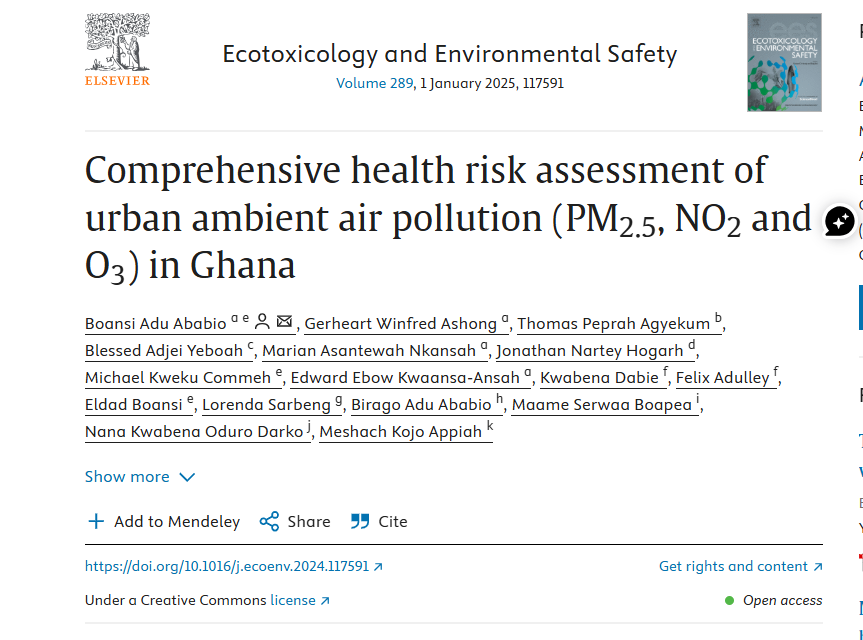Ghana Urban Air Pollution Crisis: Breathe Now, Pay Later

Ghana Urban Air Pollution Is Stealing Lives — Here’s What You Need To Know
Ghana’s cities are facing a serious problem that most people don’t fully understand: air pollution. The air we breathe, especially in cities like Accra, Kumasi, and Koforidua, contains dangerous substances that can harm your health based on findings from a study by KNUST researchers (https://doi.org/10.1016/j.ecoenv.2024.117591).
One of the biggest culprits is something called PM2.5 — tiny dust and smoke particles that are 30 times smaller than the width of a human hair. Because they’re so small, these particles can go deep into your lungs and even enter your bloodstream.
According to a new study, PM2.5 and another pollutant called ozone (O3) are found in high amounts across Ghana’s cities. These pollutants are mostly caused by car fumes, smoke from burning trash, and dust from roads and construction sites.
How Bad Is It?

It’s very bad. These tiny particles are reducing how long people can live. Breathing air with too much PM2.5 every day can take away up to 6 years of your life. That’s not just a number—it’s time you lose with your family, your dreams, and your future.
About 98% of cities in Ghana have air that’s dangerous, especially for children, the elderly, and people with health issues like asthma.
The Hidden Danger In The Air You Breathe
You can’t see or smell PM2.5 or ozone. But they’re there—and they’re damaging your lungs, your heart, and even your brain. Many people don’t realize that air pollution is now one of the top causes of early death in Ghana, responsible for about 28,000 deaths each year.
Some cities have it worse. For example, air in Akatsi is so bad that it’s harmful to everyone, not just sensitive groups.
What Can Be Done?
We need real change. The government must:
- Monitor air quality in real-time
- Enforce air pollution limits
- Promote clean cooking and transport
- Invest in renewable energy and reduce car emissions
Communities should:
- Stop burning waste openly
- Plant trees
- Support clean energy policies
📢 Call To Action: Protect Your Air, Protect Your Life
Are you aware of what you’re breathing? It’s time to demand cleaner air for yourself and your family. Share this article to help others understand. Let’s push for better air quality across Ghana.
💡 Take-Home Message: Breathe Clean Or Die Trying
- Ghana’s city air is full of invisible, deadly particles like PM2.5 and ozone.
- Breathing this air can take up to 6 years off your life.
- Children and elderly people are most at risk.
- We must act now with strong policies and public awareness.
- Clean air is a right—not a luxury.
Stay informed. Speak up. Protect your breath. Contact the author using this published piece (https://doi.org/10.1016/j.ecoenv.2024.117591)
📘 Want to know if your city is safe? Look up your local air quality index and stay inside on polluted days or contact the corresponding author via the article link!




